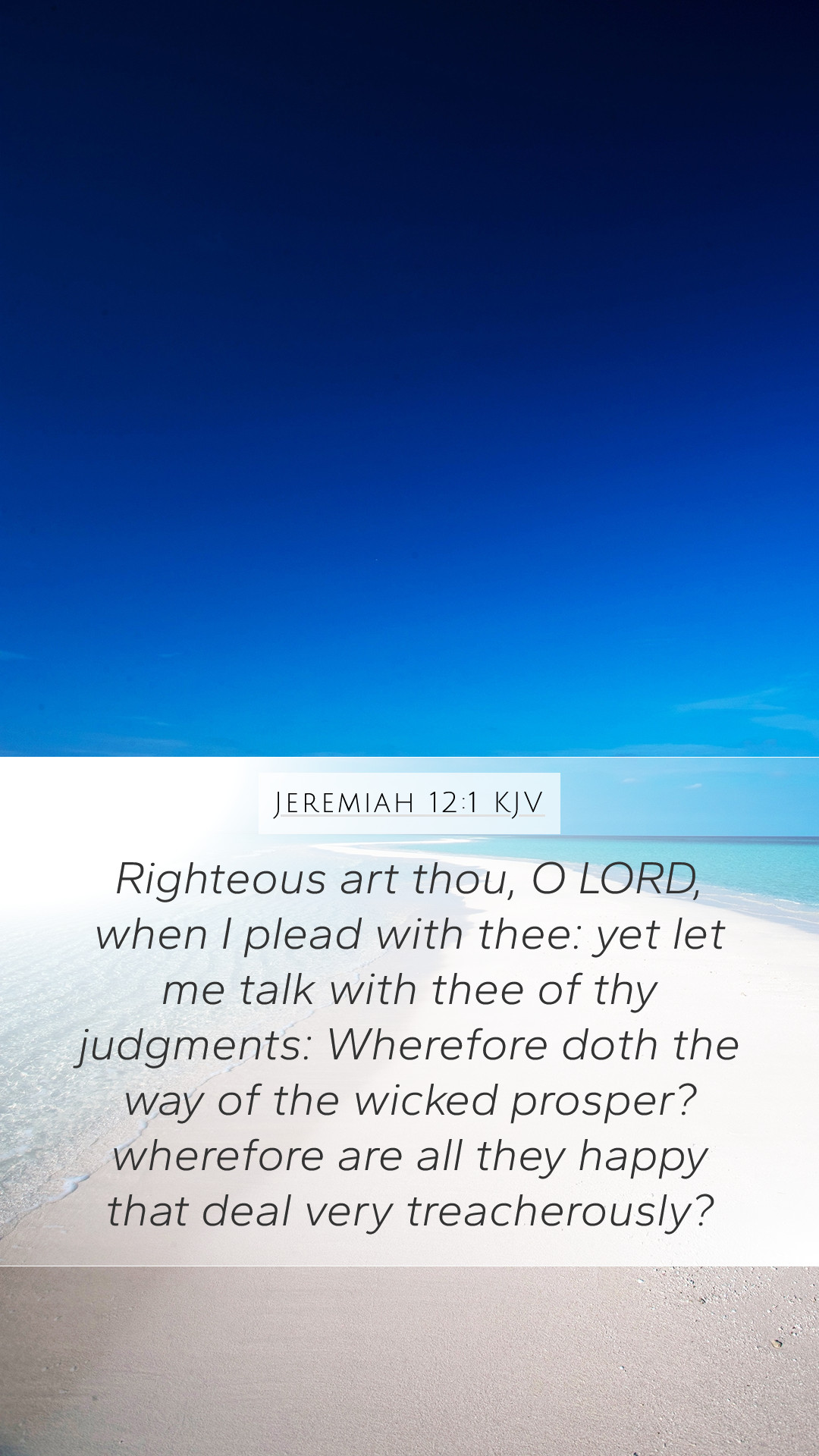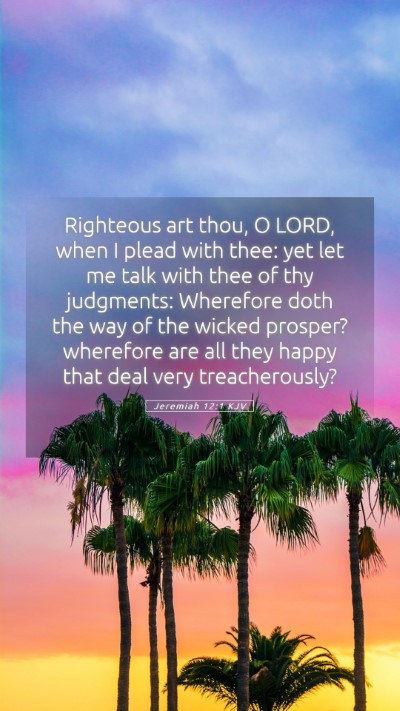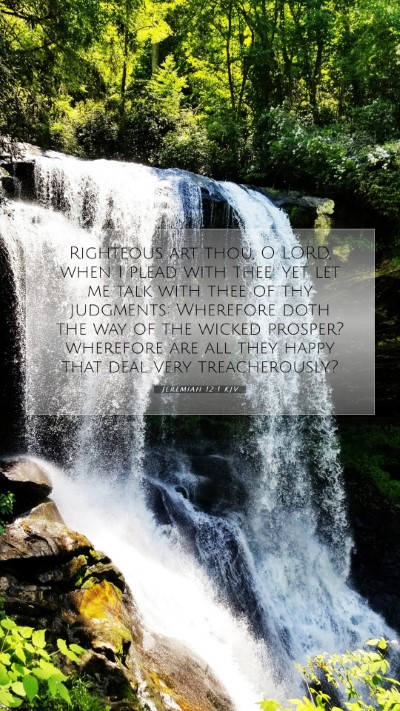Understanding Jeremiah 12:1
In this passage, the prophet Jeremiah expresses his deep struggles concerning the justice of God in the context of the prosperity of the wicked. The verse states:
"Righteous are you, O Lord, when I plead with you; yet let me talk with you about your judgments. Why does the way of the wicked prosper? Why are those happy who deal so treacherously?"
Bible Verse Meaning
This verse is a profound expression of Jeremiah's confusion and questioning regarding God's justice. It embodies the struggle many believers face when witnessing the apparent success of those who do wrong.
Insights from Public Domain Commentaries
These insights drawn from respected commentators bring clarity to the meaning of this verse:
- Matthew Henry: Henry remarks that Jeremiah begins by acknowledging God's righteousness, even while expressing his bewilderment over the wicked's prosperity. He indicates that it is natural for believers to inquire about God’s governance, especially when they see injustice prevailing.
- Albert Barnes: Barnes highlights that Jeremiah's plea reflects a desire for understanding rather than an accusation against God. His rhetorical questions illustrate a struggle with the problem of evil and the apparent success of the unjust, thus prompting readers to reflect on God’s ultimate justice.
- Adam Clarke: Clarke emphasizes the burdens of a prophet who must grapple with the stark reality of evildoers thriving while the faithful suffer. He notes that Jeremiah, in his dialogue with God, illustrates the tension between faith and the visible circumstances.
Scripture Analysis
Jeremiah's plea resonates deeply in Scripture as it captures the universal human condition of facing injustice. This passage invites readers to explore the intricacies of faith in relation to God's justice:
- Historical Context: Jeremiah lived during a time of national apostasy in Judah, where moral decay and false worship were rampant. Understanding this context helps shed light on the prophet's anguish and his questions regarding divine justice.
- Emotional Depth: The emotional appeal in Jeremiah's words reflects despair, which many believers feel at times. It is essential to recognize that such questions have been echoed throughout the Scriptures.
Application of the Verse
This verse serves as a profound reminder that it is permissible to bring our questions and burdens to God. It encourages believers to maintain a dialogue with God, expressing doubts while seeking understanding:
- Engage in Bible study groups to explore the complexities of justice and faith, drawing on Jeremiah’s experience.
- Utilize online Bible study tools to delve deeper into the context and interpretations of this verse.
- Reflect on your own life and recognize moments where you may have felt similar doubts or confusion.
Significance of Jeremiah 12:1
This verse holds great significance as it opens the door to discussing larger themes of justice, evil, and God's plan in the lives of His people. It is a call to acknowledge our struggles while maintaining faith in God's ultimate goodness:
- Understanding Difficult Passages: The emotional turmoil of Jeremiah provides comfort to those wrestling with similar feelings; it illustrates that they are not alone in their struggles.
- In-Depth Bible Verse Analysis: Engaging with this verse leads to exploring profound theological concepts regarding God's character, justice, and human suffering.
Bible Cross References
This verse can be cross-referenced with several other passages that discuss divine justice and the prosperity of the wicked:
- Psalms 37:1-2 - "Do not fret because of evildoers, nor be envious of the workers of iniquity..."
- Habakkuk 1:13 - "Why do you look on the wrong, and hold your peace when the wicked devours the one more righteous than he?"
- Job 21:7 - "Why do the wicked live, reach old age, and become mighty in power?"
Conclusion
Ultimately, Jeremiah 12:1 serves not only as a personal lament of one man's struggles but also as a universal challenge to faith in the face of adversity. It encourages us to seek God's presence, express our doubts, and trust in His ultimate plan for justice.


